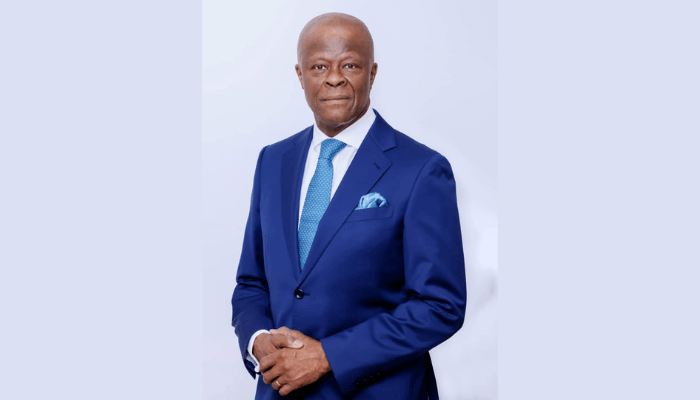Wale Edun, minister of finance and coordinating minister of the economy
The federal government has disbursed up to ₦330 billion in direct cash transfers to poor and vulnerable households across the country as part of its revamped social protection program, Wale Edun, minister of finance and coordinating minister of the economy, announced Wednesday.
The program, which forms part of the administration’s economic response to subsidy removal and currency reforms, is aimed at cushioning the impact of rising living costs on low-income Nigerians.

Addressing a press conference in Abuja, Edun said the government has resumed full implementation of the national social safety net program, which had faced delays earlier this year due to a required integration of biometric data through the National Identity Number (NIN).
He confirmed that 8.5 million households—out of a targeted 15 million—have so far received at least one tranche of the ₦25,000 monthly payment, while some have received up to three tranches. Each household is expected to receive three payments in total.
“We are pleased to report that the social protection program, the putting in place of a safety net to help people cope with the rising price level, is now firmly back on track,” Edun said.
He added that the initiative now stands as a foundational pillar for a long-term, modern social protection system. “Nigeria now has the basis for a modern social protection system. That was the promise of Mr President. That is what he is now putting in place.”
The transfer program, partially funded by an $800 million World Bank loan, was originally structured to provide ₦5,000 monthly over six months. However, the Tinubu administration raised the payout to ₦25,000 over three months following widespread economic hardship triggered by the removal of fuel subsidies and a sharp currency devaluation. These reforms, though hailed as necessary for macroeconomic stability, have disproportionately affected low-income Nigerians.
Funmi Olotu, who heads the National Social Safety Net Coordinating Office (NASSCO), said the shift to digital disbursements tied to NIN verification had slowed the payment pace but was critical for ensuring transparency and eliminating political interference.
“Mr President said no more traditional way of giving them payments—pay directly into the account,” Olotu told reporters. “So the reason why some have received three and some have received two and one is because Mr. President said we should link the NIN to the National Social Register so that we do direct debit transfer.”
According to Olotu, more than 10.2 million NINs have been collected, and about 9.6 million have already been verified by the National Identity Management Commission. The disbursement system is designed to be biometric-based and digital, with funds transferred either to recipients’ bank accounts or mobile wallets.
The National Social Register (NSR), which is being used as the basis for targeting beneficiaries, contains data on over 70 million individuals in about 19.7 million households. It was developed in partnership with the World Bank using over 40 socioeconomic indicators to ensure that the most vulnerable are correctly identified.
The program, part of a broader effort to stabilise the economy while addressing inequality, reflects a policy shift towards more structured and accountable welfare distribution.
“The National Social Register is not a political register,” Olotu emphasised. “The Minister of Finance cannot give me names to put on the register. Mr President cannot give me names to put on the register.”
While the cash transfer program is currently a one-off intervention, officials said the federal government is laying the groundwork for a permanent budget line to fund future social safety net programs.
The data infrastructure being built is also expected to serve multiple purposes, allowing development partners and private sector organisations to mine verified information for targeted assistance.
Olotu noted that beyond the World Bank-funded initiative, the NSR will be the central database for all government interventions going forward, as directed by an executive order from the president.
“Mr. President has already given an executive order that all interventions in the country should come from the National Social Register,” she said.
Stay ahead with the latest updates!
Join The Podium Media on WhatsApp for real-time news alerts, breaking stories, and exclusive content delivered straight to your phone. Don’t miss a headline — subscribe now!
Chat with Us on WhatsApp






